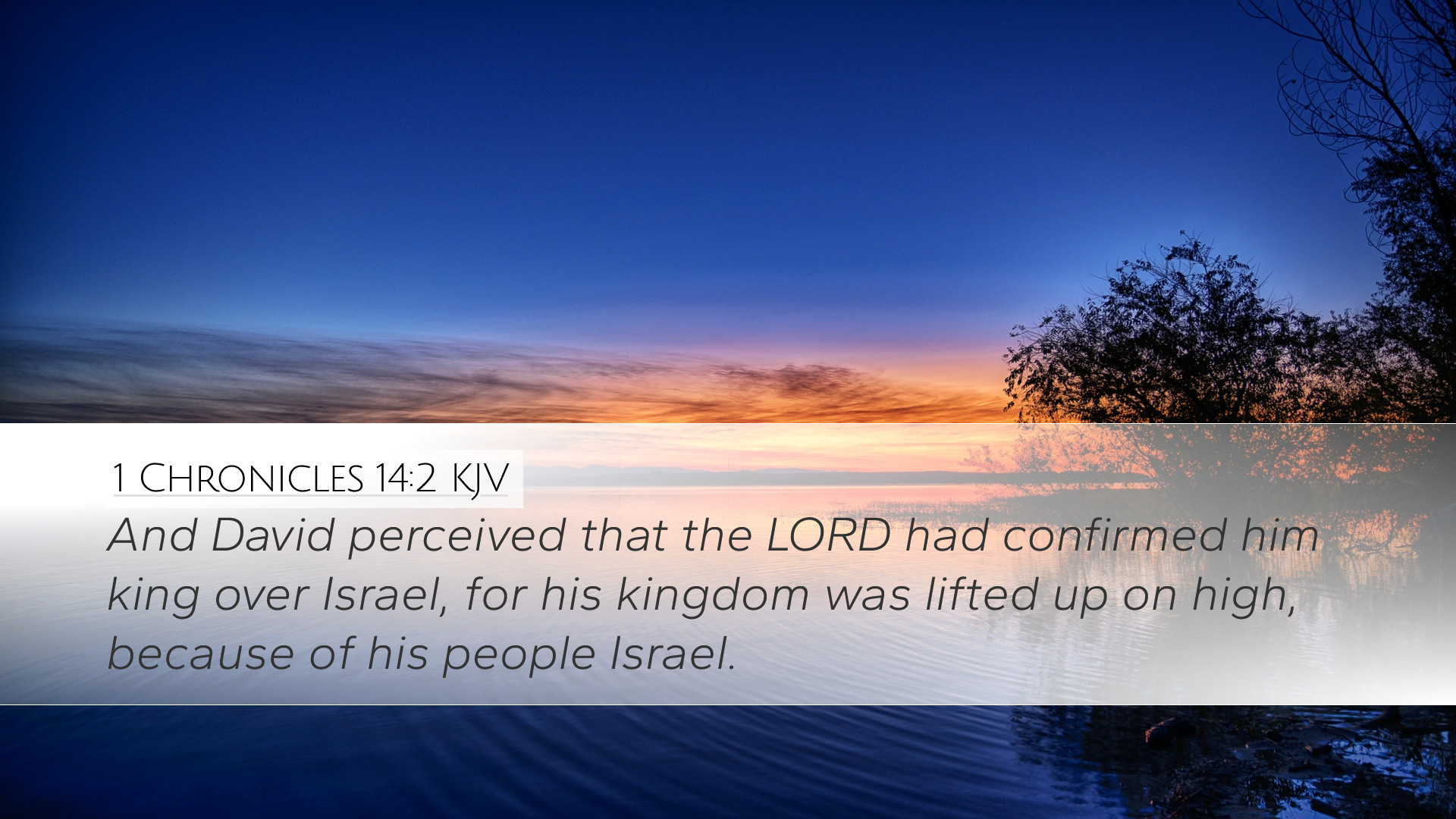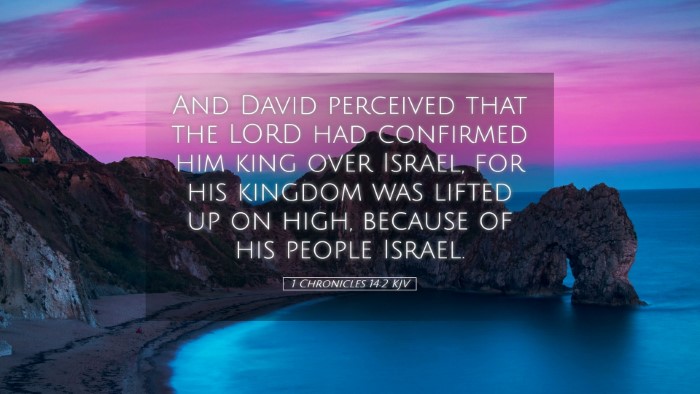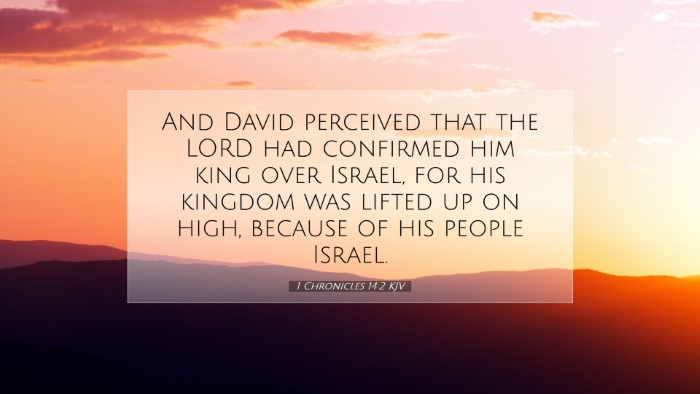Commentary on 1 Chronicles 14:2
The verse 1 Chronicles 14:2 states, "And David knew that the LORD had confirmed him king over Israel, for his kingdom was highly exalted for the sake of his people Israel." This biblical account provides insight into the establishment of David's kingship and the divine affirmation of his rule over Israel. Here, we explore insights drawn from various public domain commentaries, including those of Matthew Henry, Albert Barnes, and Adam Clarke, examining the theological and historical significance of this pivotal moment.
Understanding the Context
This passage occurs shortly after David's rise to kingship, reflecting a time of transition for the Israelites. David, having been anointed as king of Israel, faced numerous challenges, including uniting the tribes and establishing a stable reign. The surrounding context of this verse highlights God's providence in David's ascension and the fulfillment of God's promises to His chosen people.
The Confirmation of Kingship
The statement that "David knew that the LORD had confirmed him king" implies not just an acknowledgment of his position but an understanding of the divine endorsement of his authority. As Matthew Henry notes, God’s choice of David was sovereign, and this awareness instilled in David a sense of humility and gratitude.
According to Albert Barnes, God's confirmation of David is significant because it indicates divine support during a time where the loyalty of the tribes was divided. This confirmation allowed David to confidently lead the nation and brought stability to his reign. It reassures God's people that their leadership is a result of divine selection, not merely political maneuvering.
David's Response to God's Confirmation
David's response to the confirmation of his kingship reveals his deep reliance on God. Adam Clarke emphasizes that David’s awareness of God’s hand in his kingship demands that he rule not in pride but in accordance with God’s will. In recognizing the exaltation of his kingdom for the sake of Israel, David is aware of his responsibilities as a leader to serve his people selflessly.
Theological Implications
The affirmation of David's kingship carries significant theological implications. David's leadership is understood in a covenantal context, where God, in His sovereignty, chooses and establishes leaders for His people. This is a foreshadowing of Christ's ultimate kingship and His relationship with the Church, as noted by Henry.
- Divine Sovereignty: The acknowledgment of Yahweh's role in elevating David emphasizes God's control over human affairs.
- Covenantal Relationship: This moment illustrates the covenant loyalty between God and His people, as a king's authority is rooted in divine approval.
- Servant Leadership: David's exaltation comes with the understanding of servant leadership, which is essential for any God-anointed leader.
The Exalted Kingdom for the Sake of Israel
The latter part of the verse states that David's kingdom was "highly exalted for the sake of his people Israel." This phrase indicates that David's rule was not merely for his own glory but for the benefit and elevation of the entire nation. According to Barnes, this reflects the heart of a true leader who prioritizes the welfare of their people.
Henry further explores this notion by asserting that the success of David’s reign is intrinsically tied to the spirituality and moral integrity of its foundation. The exaltation of his kingdom serves as a reminder of the collective identity and purpose of Israel as God’s chosen people.
Applications for Contemporary Leadership
The lessons drawn from David's kingship provide timeless applications for modern leaders within the church and community. The understanding that leadership is a divine calling encourages leaders to seek God’s will and wisdom in their decision-making processes.
- Seek Divine Guidance: Like David, leaders today should recognize the importance of striving for God’s confirmation in their roles.
- Pursue Servant Leadership: David’s model encourages leaders to be selfless, prioritizing the needs of their people over personal ambition.
- Emphasize Community Welfare: The principle of serving the community’s best interests should be a cornerstone of any leadership role.
Conclusion
In 1 Chronicles 14:2, we witness a profound moment in biblical history when God affirms David's kingship. This passage encourages leaders to recognize their roles as divinely intended, serving their communities faithfully. Both for pastors and students of the Bible, the exploration of this verse emphasizes the interplay between divine sovereignty and responsible human leadership, urging an alignment with God's purposes for the sake of His people.


